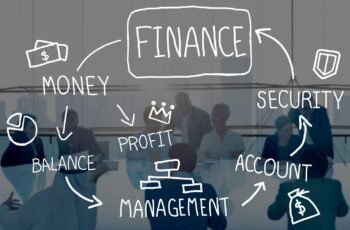Personal finance refers to the management of an individual’s financial resources, such as income, expenses, investments, and savings. It involves making informed decisions about money matters to achieve financial goals and secure a stable financial future.
The Importance of Personal Finance
Personal finance is crucial for individuals of all income levels and backgrounds. It provides a framework for managing money effectively, ensuring financial stability, and making informed financial decisions. Here are some key reasons why personal finance is important:
1. Financial Security
By practicing good personal finance habits, individuals can build a strong financial foundation and protect themselves from unexpected financial hardships. This includes having an emergency fund, insurance coverage, and a solid plan for retirement.
2. Goal Achievement
Personal finance helps individuals set and achieve financial goals. Whether it’s buying a home, starting a business, or saving for education, having a clear plan and managing finances wisely can pave the way to achieving these goals.
3. Debt Management
Effective personal finance includes managing debt responsibly. This involves understanding the different types of debt, such as credit cards and loans, and developing strategies to pay them off efficiently. By reducing debt and improving credit scores, individuals can have better access to financial opportunities.
4. Financial Independence
Personal finance empowers individuals to take control of their financial lives and achieve financial independence. It involves making informed decisions about spending, saving, and investing, which can lead to greater financial freedom and flexibility.
Key Principles of Personal Finance
While personal finance can be complex, there are some key principles that can guide individuals in managing their finances effectively:
1. Budgeting
A budget is a fundamental tool in personal finance. It involves tracking income and expenses to ensure that spending aligns with financial goals. Budgeting helps individuals prioritize expenses, save money, and avoid overspending.
2. Saving and Investing
Setting aside a portion of income for savings and investments is essential for long-term financial security. Saving helps build an emergency fund and achieve short-term goals, while investing allows individuals to grow their wealth over time.
3. Managing Debt
Managing debt responsibly is crucial for maintaining a healthy financial life. This includes paying bills on time, avoiding unnecessary debt, and developing strategies to pay off existing debt efficiently.
4. Financial Education
Continuing to learn about personal finance is important for making informed financial decisions. This can involve reading books, attending seminars, or seeking advice from financial professionals.
Resources for Personal Finance
There are numerous resources available to help individuals improve their personal finance skills and knowledge. These include:
1. Personal Finance Books
There are many books written by financial experts that provide valuable insights and advice on personal finance. Some popular titles include “Rich Dad Poor Dad” by Robert Kiyosaki and “The Total Money Makeover” by Dave Ramsey.
2. Online Courses
Various online platforms offer personal finance courses that cover topics such as budgeting, investing, and retirement planning. These courses can be a convenient way to enhance financial literacy.
3. Financial Advisors
Seeking guidance from a financial advisor can be beneficial, especially for complex financial situations. A financial advisor can provide personalized advice and help individuals create a comprehensive financial plan.
4. Financial Apps and Tools
There are numerous mobile apps and online tools available to help individuals track expenses, create budgets, and manage investments. These tools can simplify personal finance management and provide real-time insights.
In conclusion, personal finance is the practice of managing one’s financial resources effectively to achieve financial stability and meet financial goals. It is essential for individuals to develop good personal finance habits, such as budgeting, saving, investing, and managing debt, to secure a stable financial future.




